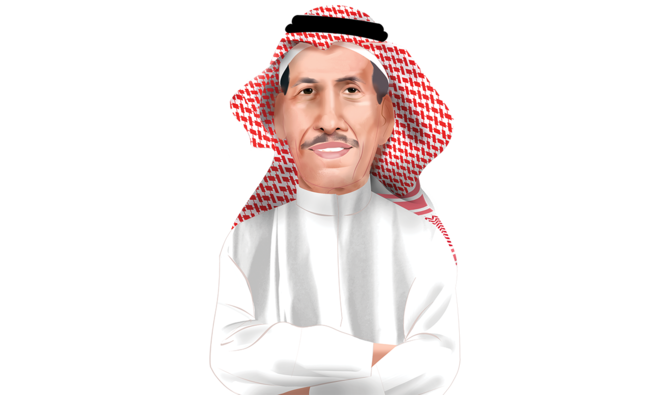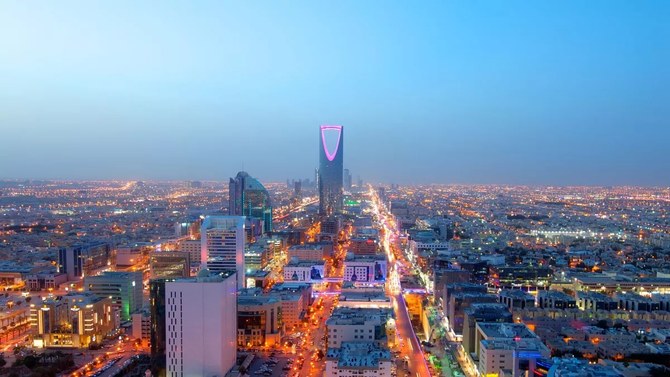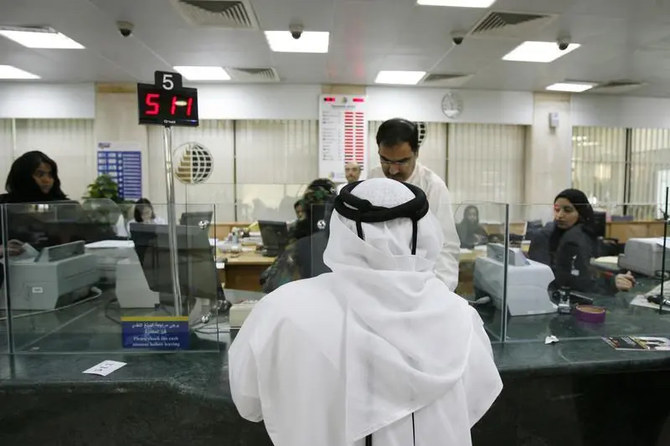Saudi Arabia is renowned for its “black gold” hydrocarbon resources, but it is Mosaed Al-Ohali’s job to ensure that the rest of the Kingdom’s mineral wealth is exploited to the full in the big economic transformation underway as part of Vision 2030.
After a three-decade career at the petrochemicals giant SABIC, Al-Ohali earlier this year became CEO of Ma’aden, the Saudi mining company that has been given a central role in the National Industrial Development and Logistics Program (NIDLP), a key part of the Kingdom’s diversification strategy.
“Achieving the industrial and manufacturing perspective of Vision 2030 will be heavily dependent on the availability of the minerals needed to produce metals required in manufacturing,” he told Arab News.
“As the national mining champion, we play a central role in the economic diversification of the nation. We are also applying advanced minerals exploration techniques and technologies to extract minerals that will further develop Saudi Arabian industries.”
Oil has been the engine behind the country’s modern economic development, but there are many other precious materials beneath its rugged terrain. The Kingdom is the biggest producer of gold ore in the Middle East, and gold has been mined here for thousands of years.
It is also rich in the minerals that power the global economy — aluminum via bauxite, copper, phosphates and other base metals, as well as the rare earth metals that are in increasing demand by high-tech industries.
The Kingdom’s Energy Ministry recently estimated its untapped mineral resources to be worth about SR5 trillion ($1.33 trillion). Under Vision 2030, the government is aiming to triple the mining and metals sector’s contribution to gross domestic product and create 200,000 jobs directly and indirectly by 2030.
“Saudi Arabia has vast under-explored territories compared with other world-class mining countries. Ma’aden’s goal is to capitalize on that to become one of the world’s top mining companies, and we are making great strides in achieving this goal,” Al-Ohali said.
“In 2019, Ma’aden tripled its exploration spend and plans for more in 2020. The increase in exploration spending is focused on brownfield drilling, assessment of potential greenfield targets and continued drilling at many prospective locations to maintain healthy ore reserves. We are working on two more gold mines that we expect to bring on stream around the middle of the decade,” he added.
The COVID-19 pandemic has affected those plans to some degree. Ma’aden’s operations in the Kingdom felt the brunt not only of lockdowns — the company put in place a strategy to “prevent, detect and isolate” outbreaks of the virus in its mining camps — but also the global economic shock that hit the commodities markets especially hard.
“In terms of our current operations, the impact of COVID-19 on our local and global supply chains and distribution networks have been manageable so far, but it is still too early to say how the pandemic might impact the business in the coming period, especially if there is a second outbreak,” he said.
BIO
BORN: 1959, Unaizah, Al-Qassim Province
EDUCATION: Master’s degree in chemical engineering, King Fahd University of Petroleum and Minerals
CAREER
- Chemical engineer, Saudi Petrochemical Company
- Senior executive adviser, SABIC
- CEO, Ma’aden
Al-Ohali estimated that the pandemic would mean a delay of “a couple of months” in overall expansion plans.
Global commodity prices had been suffering even before the pandemic, with the US-China confrontation casting a cloud over world trade. But, Al-Ohali said, in some parts of the world there has been a “good adjustment” to the new economic environment, with China and other Asian countries experiencing a pick-up in demand.
Aluminum prices have been “inching up,” and there is steady demand for fertilizers and phosphates in some parts of the world.
“We currently export our products to about 22 countries across all continents. We serve the farming industry in all major regions in Asia, Africa, the Americas and Australia. Our aluminum products serve mainly the local market, as well as key countries in Asia, Europe and North America,” he added.
Ma’aden’s supply chain and market reach were strengthened by the acquisition of Meridian, an African fertilizer group, as well as through joint ventures with other international mining companies.
The bright spot of the pandemic lockdown for Ma’aden has been the performance of gold on international markets. “We are very happy to have gold as a major part of our business. It is a counter-cyclical commodity in some respects, and has virtually acted as a built-in hedging mechanism for us. It was seen as a ‘safe haven’ investment around the world,” he added.
Gold continues to play a prominent part in growth plans, Al-Ohali said. “We have started construction of our largest and most ambitious mine initiative, the Mansourah & Massarah gold project. This is an $880 million undertaking that will leverage the tremendous mineral wealth of Saudi Arabia and help us achieve our strategic goal of increasing gold production to 1 million ounces per year.”
Two years ago, Ma’aden embarked on one of its most ambitious plans in the Kingdom — the Wa’ad Al-Shamal Minerals Industrial City, a development of seven world-class integrated plants with the capacity to produce 3 million tons of phosphate fertilizer products per year. As one of the largest integrated phosphate centers in the world, the development will serve the growing global need for fertilizers.
“Our growth ambitions in phosphate are high. We are currently constructing our third ammonia plant which is around 50 percent completed for a capacity of about 1.1 million tons per year. We are also in the process of exploring our next phosphate mega-project, set to produce 3 million tons per year,” he added.
Recently, Ma’aden put in place a $4.1 billion financing facility that allows the Wa’ad Al-Shamal business to move to full operational status. “This refinancing is especially important as it now has a very active and clear plan to resolve its design problems and ramp up production to full throughput toward the second half of 2021,” Al-Ohali said.
Since its initial public offering in 2008, Ma’aden has been listed on the Tadawul stock exchange, with the Public Investment Fund as its majority shareholder. That kind of backing gives it deep financial pockets, but Al-Ohali is conscious of the needs of some shareholders for an income stream in the form of dividends, as well as the capital growth the shares have traditionally earned.
The global commodity price downturn and the economic effects of the pandemic combined to produce losses for the first two quarters of the year, but Al-Ohali said the long-term outlook for the core business segments remains positive.
“It is difficult to speculate on what the remainder of the year will look like, but I can assure you that Ma’aden has inherent strength in its aluminum value chain. While heavily leveraged for the time being, we feel confident of our operating margins to generate ample cash to take care of all our obligations,” he added.
Ma’aden’s financial potential has been enhanced by the passing earlier this year of the mining investment law. “It is a big step in the efforts the government of Saudi Arabia is taking to facilitate the growth of the mining industry and enhance its role in building a diversified and sustainable economy,” Al-Ohali said. Ma’aden was closely involved in the framing process for the new legislation.
“The updated law focuses on enhancing the governance and transparency for current and future mining investments, and boosting the confidence of investors by providing transparent and sufficient mining data that allows investors to conduct feasibility studies, as well as providing a clear process for licensing.
“It also supports the sustainability of mining investments by preserving the environment, and complying with health, safety and environmental regulations for workers in the national mining industry and local communities,” he added.
The legislation is also likely to facilitate new relationships with foreign investors and industry partners. Ma’aden already has long-standing ties with Alcoa of the US in the Ras Al-Khair Industrial City, and with Barrick Gold of Canada in copper production. It also has a strategic partnership with PhosAgro of Russia.
“We constantly explore growth through wholly owned opportunities or with strategic partnerships to improve our ability to serve our global customers and solidify our position on the global stage,” Al-Ohali said.
“We have the competitive edge to achieve success and we strive to build Ma’aden’s brand and ensure it is recognized for quality and value. Our experienced and talented people are well able to deliver on our promises,” he added.


















